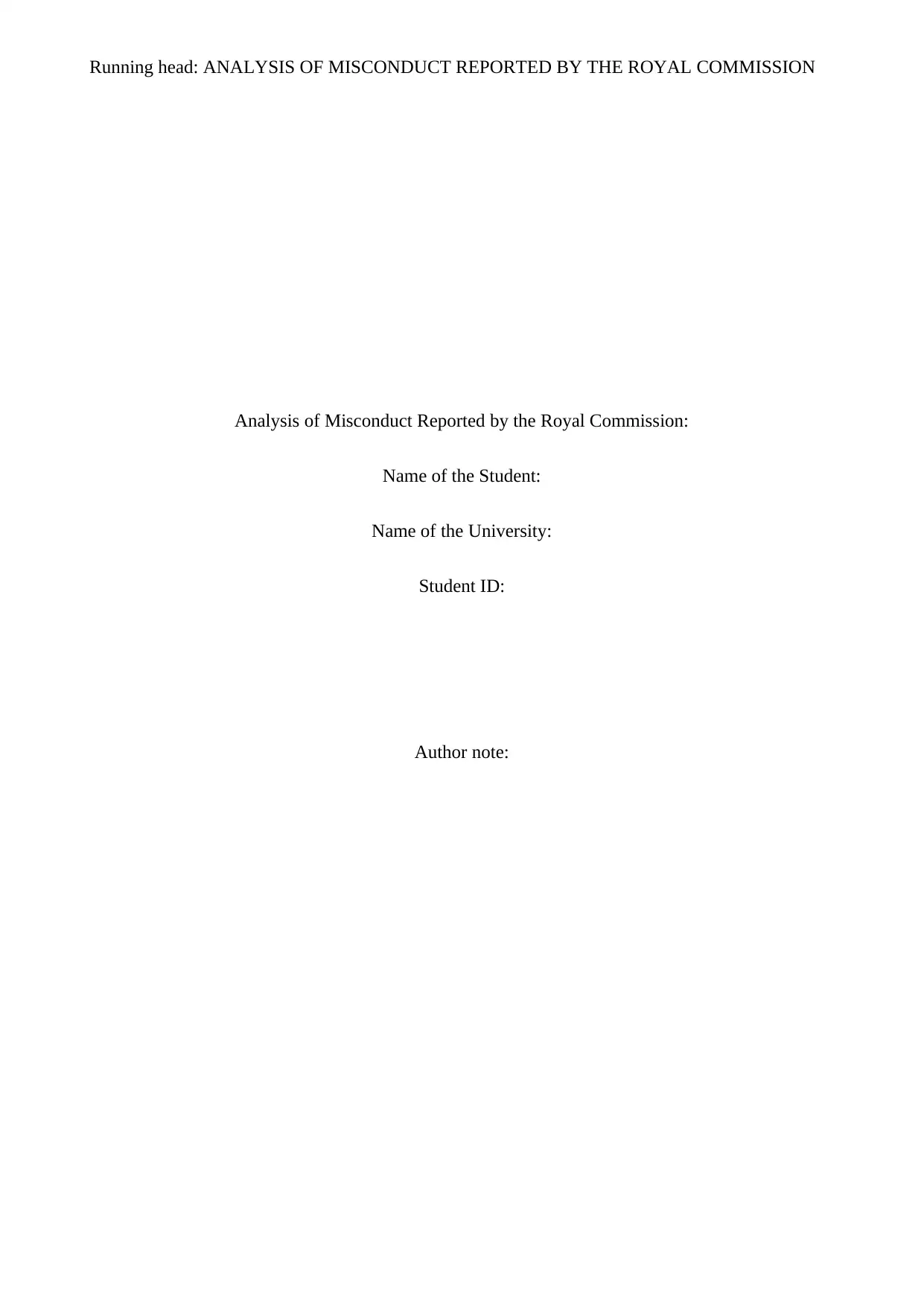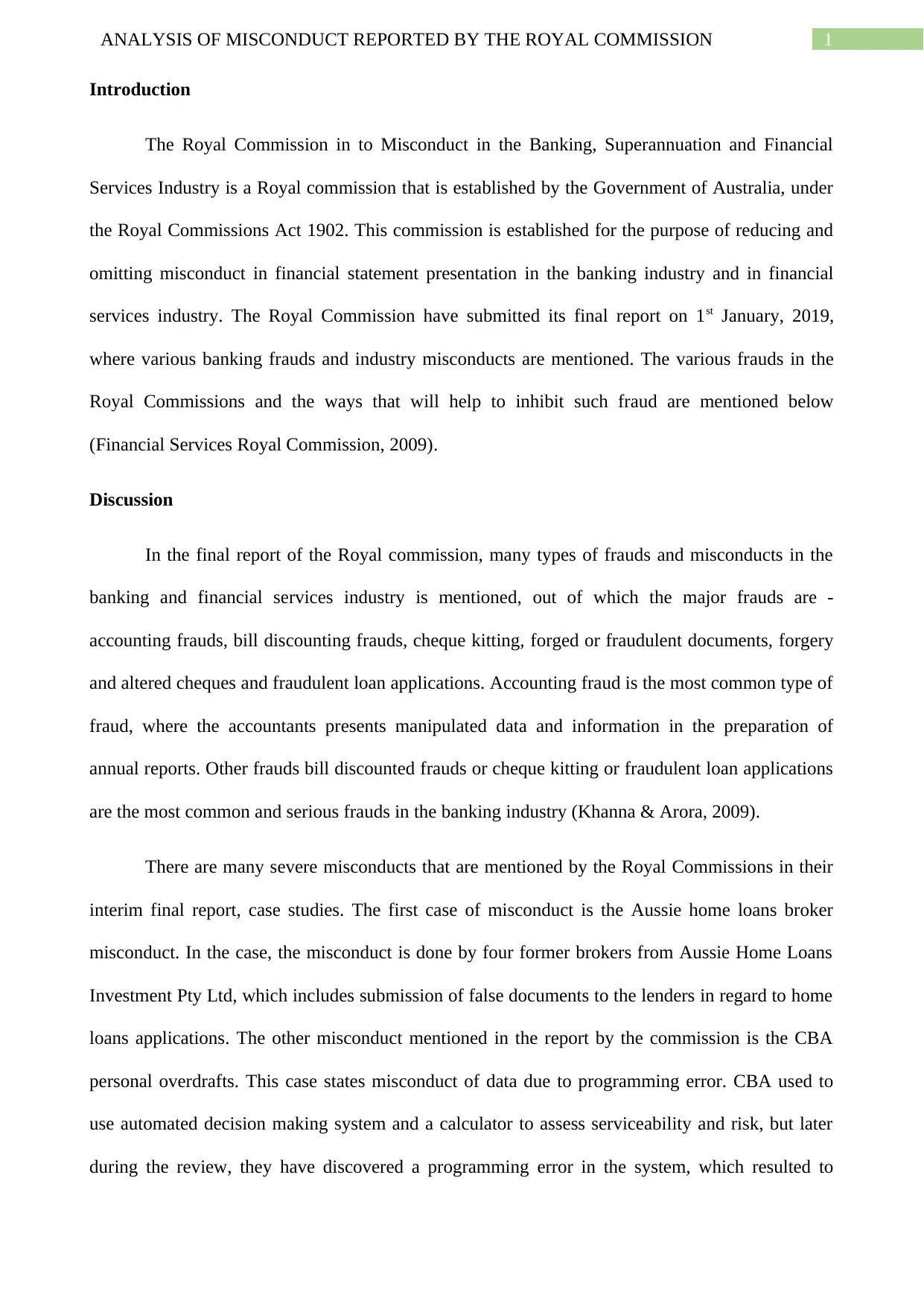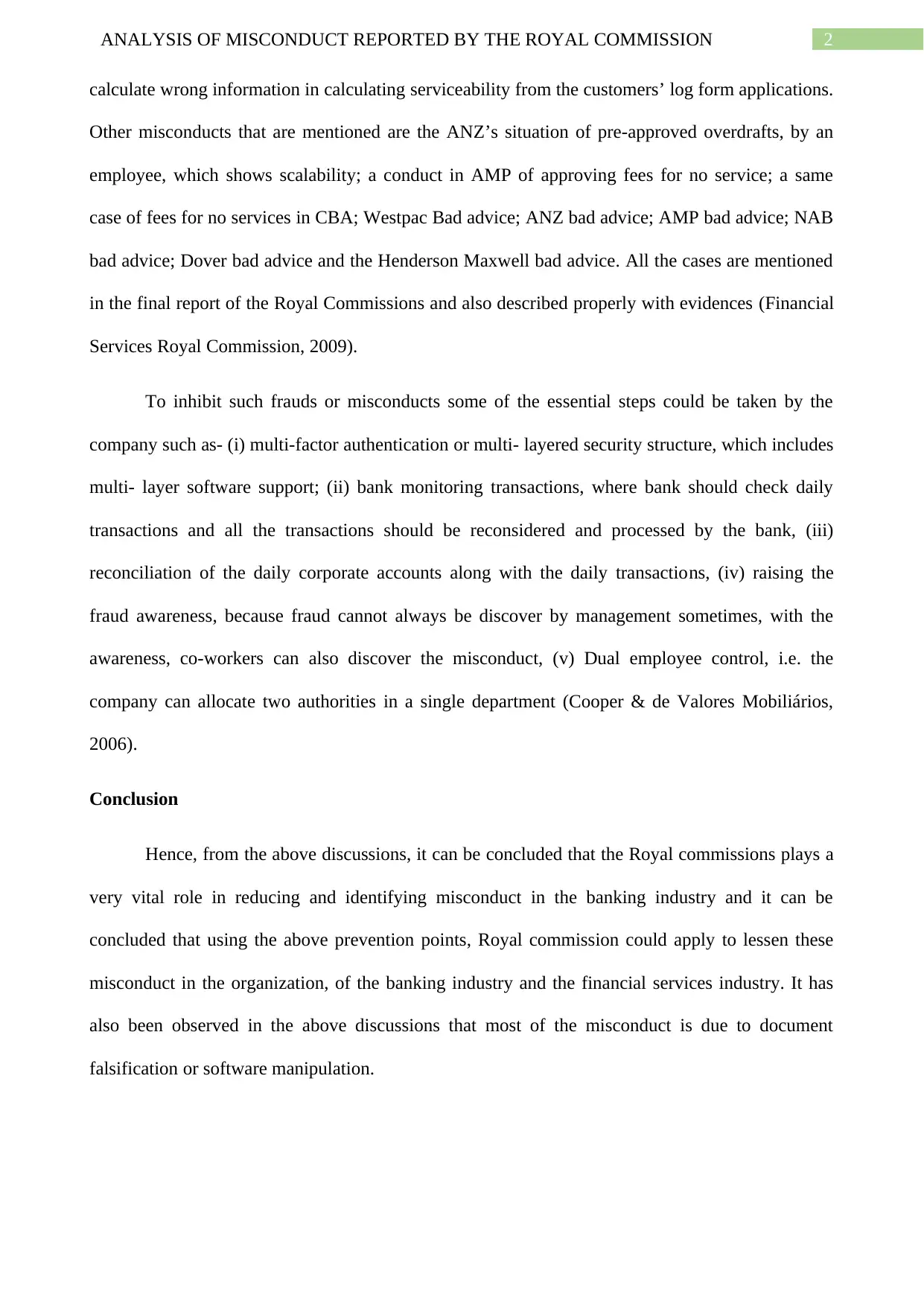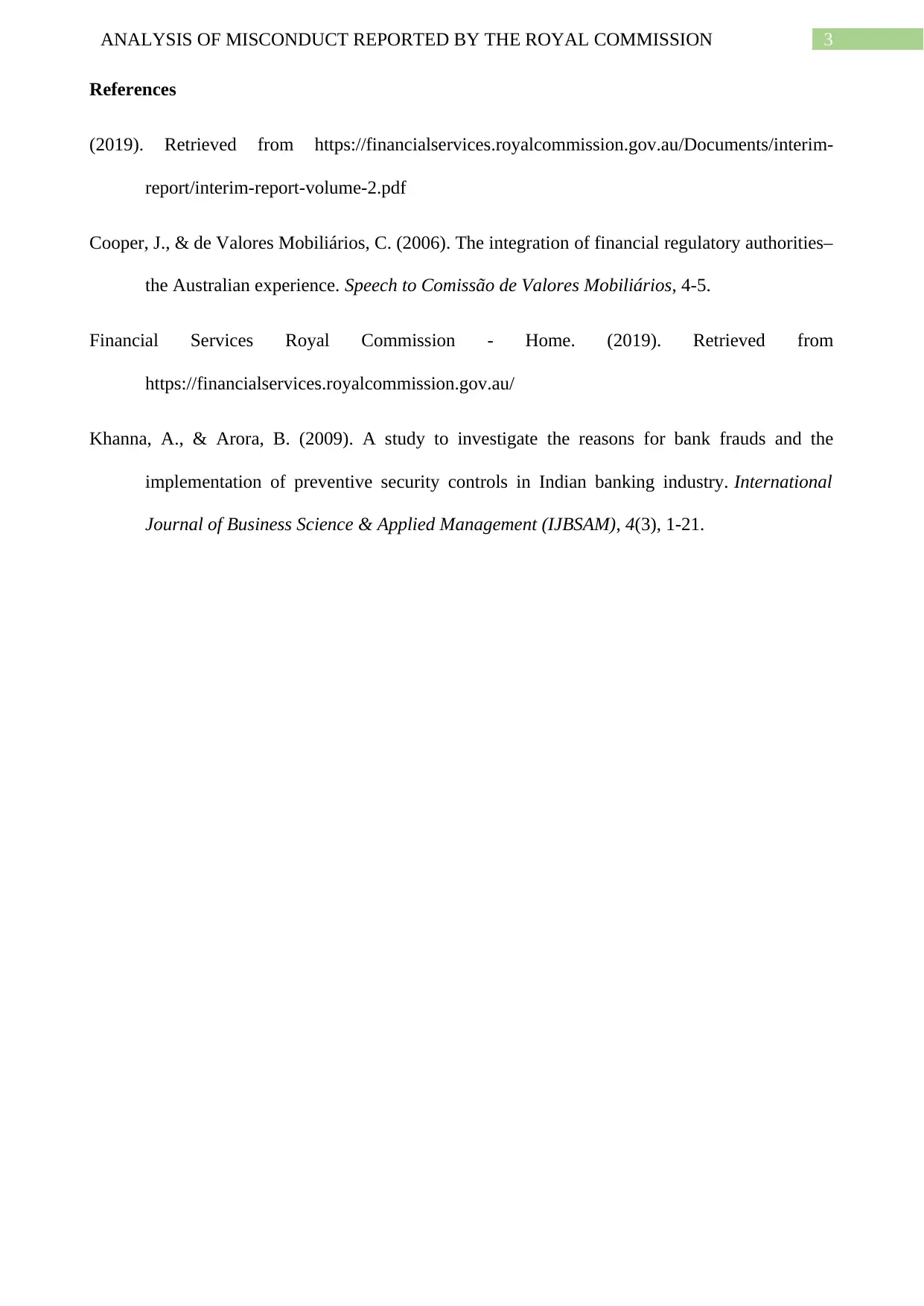TOP TACC609 S1 2019: Royal Commission Fraud and Prevention
VerifiedAdded on 2023/01/17
|4
|875
|77
Report
AI Summary
This report analyzes the Royal Commission into Misconduct in the Banking, Superannuation and Financial Services Industry, focusing on various types of fraud and misconduct within the banking and financial services sector. The report identifies major fraudulent activities, including accounting fraud, bill discounting fraud, cheque kitting, and fraudulent loan applications, as highlighted in the Royal Commission's final report. It discusses several case studies of misconduct, such as broker misconduct, programming errors in customer data, and instances of providing fees for no service. The report further suggests several steps to inhibit such frauds, including multi-factor authentication, bank monitoring of transactions, reconciliation of accounts, raising fraud awareness, and dual employee control. It concludes by emphasizing the vital role of the Royal Commission in identifying and reducing misconduct and the effectiveness of the proposed preventive measures in mitigating fraud within the banking and financial services industries. The assignment is a response to the TOP TACC609 Forensic Accounting assignment, providing a detailed overview of the fraud types and their prevention.
1 out of 4










![[object Object]](/_next/static/media/star-bottom.7253800d.svg)